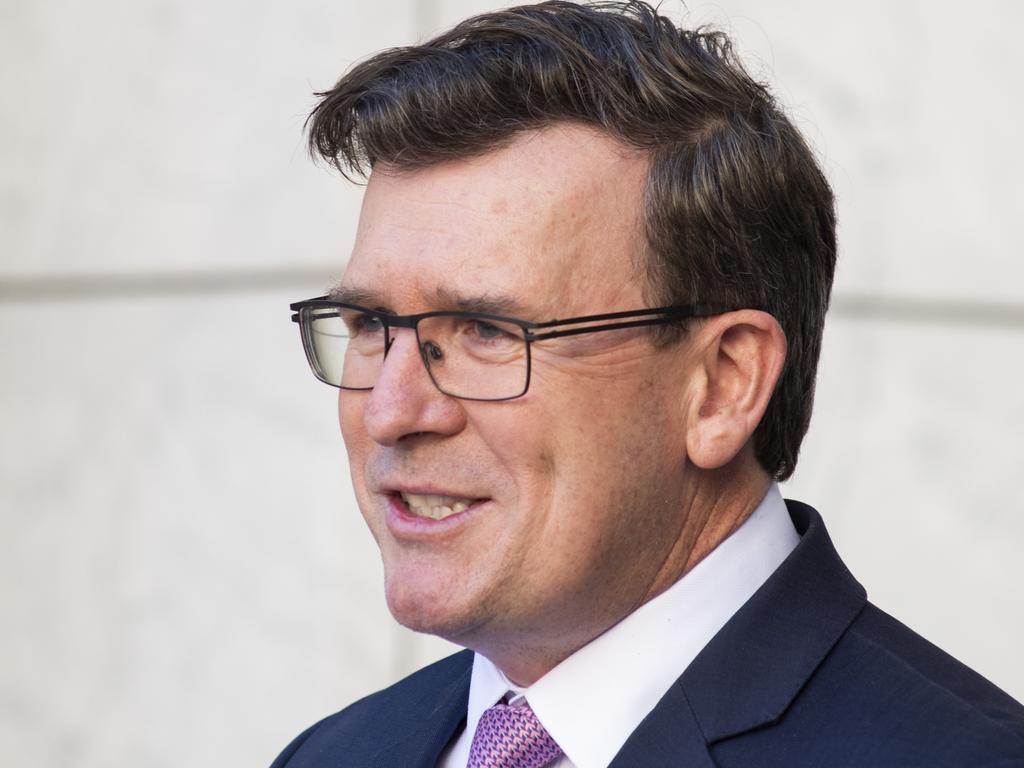Teaching methods must add up
On Thursday, Education Minister Alan Tudge will unveil his goal — to elevate Australia to the top of the global rankings for student academic achievement by 2030. It is a formidable challenge, but important to the national interest. Since 2000, in the OECD’s PISA testing of 15-year-olds, Australia’s performance in reading has declined sharply. In his speech to the Menzies Research Institute, Mr Tudge will present the alarming facts. Australian students are now, on average, about 1½ years behind Singaporean students when it comes to reading and science, and three years behind on maths, as Rebecca Urban reports.
The decline has been consistent. Australia’s top students are less likely to score in the highest achievement bands, and lower-performing students are falling below the proficient standard. As Mr Tudge will say: “The problem is not a growing divide in student results; it is a decline in performance across the board.’’
The minister brings 20 years of experience to the task of rectifying it. He was a co-founder of the Teach for Australia program, and he worked on education policy with Noel Pearson in the Cape York Partnership. His expectations are realistic. Australia will not bridge the gap between us and Singapore “overnight’’, but building on the initiatives of some of his predecessors and improvements under way in some states, he is on the right track.
Within the national curriculum, Mr Tudge wants a concentration on the fundamentals of reading, mathematics, civics and citizenship — the building blocks for further study. Decluttering the curriculum makes sense. A recent report by the Australian Curriculum Assessment and Reporting Authority comparing Australia with Singapore found our Asian neighbour recently reduced the volume of content in its curriculum by one-third, shifting its focus to “learning and teaching outcomes”.
Mr Tudge’s focus on teaching quality and his impending review of the teacher education sector are also vital. OECD data suggests teachers in Australia feel less well prepared than those across the OECD average in relation to curriculum content, pedagogy (teaching and learning methods), managing student behaviour, and monitoring student progress. As the minister has found, some teachers are still graduating from their courses insufficiently prepared to teach in a classroom. In some cases, the courses focused too much on theory; in others, evidence-based teaching methods were not taught. When La Trobe University recently offered a short course in teaching phonics — the tried and tested method of teaching young children to read — 1000 teachers signed up; an indictment, as Mr Tudge says, on education faculties that they were not taught it in the first place, given the weight of evidence that it works.
Curriculum reform will not be straightforward, however. As Urban wrote on Wednesday’s front page, the process is in disarray after ACARA twice rejected a draft maths curriculum, amid concerns it was based around vague and potentially confusing ideas and would be too complex for teachers, many of whom are not maths subject specialists.
Many parents paying $50 an hour and more to have their children coached through Year 11 and 12 maths know how problematic the subject is for many students. It is also a prerequisite for major university courses, yet the percentage of Year 11 and 12 students enrolling in it in recent years has declined. That trend, in turn, has left the nation short of STEM graduates, including engineers, specialist maths teachers and some medical professionals.
Robust discussion among professional educators in arriving at the best curriculum is no bad thing. What matters is that students learn maths well, a process that needs to start early in primary school and progress through to senior schooling.
As Centre for Independent Studies research fellow Glenn Fahey says, there is much to learn from Singapore in terms of curriculum rigour and quality of teaching.




More than $23bn in extra funding has been allocated, and millions of words printed, to improve the performance of Australian schools since 2013 — with too little to show for it. Yet again, new education targets are being set, as they were by Kevin Rudd and Julia Gillard, who announced an “education revolution’’ after winning office in 2007. Numerous ministers, from both sides, have expressed similar ambitions since.